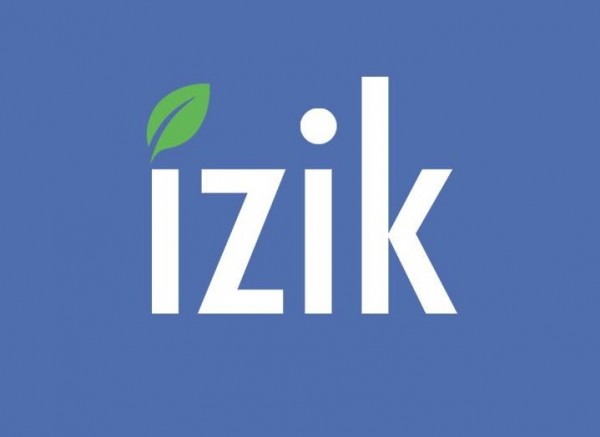Marketing Biz: Radical Transparency & Buying Community
Better information on campaigns and competitors has the opportunity to reshape the digital advertising industry. So the seed funding for YieldMetrics and the acquisition of MakeGood by Quantcast are pretty radical, dude. For the second week in a row we saw the value of community online as ZURB purchased design community Forrst. There was also location-based […]
Better information on campaigns and competitors has the opportunity to reshape the digital advertising industry. So the seed funding for YieldMetrics and the acquisition of MakeGood by Quantcast are pretty radical, dude.
For the second week in a row we saw the value of community online as ZURB purchased design community Forrst. There was also location-based news with FieldTrip adding deals to their offering and yet another mobile payment entrant.
This is … Marketing Biz.
YieldMetrics closes buzzy $1.7 million Seed round, delivers radical transparency to online advertising
The information gives advertisers, publishers, and ad networks insights about their own ecosystem and, equally importantly, that of their competitors. Who’s advertising where, and through what channels or intermediaries? What creative assets are brands deploying? All the data is wrapped up into a friendly dashboard called AdRoutes, which is updated daily – rather than the industry standard monthly data reports.
Okay, you’ve got my attention. Transparency and feedback on your own advertising is one thing but being able to see competitors advertising strategies and creative assets is a huge window of competitive intelligence that every marketer will want to stare at for hours.
Quantcast Acquires MakeGood Software

We are happy to announce that Quantcast has acquired MakeGood, a software company focusing on reconciliation and reporting of digital advertising campaigns.
The increasingly complex nature of real-time advertising means advertisers require better tools to properly understand and attribute ad campaign success and optimize their budgets. A significant portion of advertising technology development has focused on automation and optimization related to the delivery of individual impressions, but industry participants also face significant complexity in aggregating, organizing and reconciling campaign data to form a “single view of truth” in order to make critical business decisions.
Among all of the traffic measurement companies I’ve always preferred Quantcast. They aren’t always right but they’re the least wrong in my experience. So I’m intrigued by the acquisition of MakeGood (great inside-baseball name by the way) as a way to get a real look at advertising delivery. Third-party tools to measure impressions (viewable and non-viewable) are in high demand.
Is Facebook worth it? Film execs confide they may cut movie ads
The skirmish with Hollywood comes at a sensitive time for Facebook. The company, under pressure from Wall Street to grow revenue after its initial public stock offering in May, is competing with other social media for a share of the estimated $1.5 billion a year each major studio spends promoting movies globally.
Lets back down from the ledge. There’s no question that Facebook will remain a viable advertising platform for Hollywood. What this indicates is that the budget allocation to Facebook versus other digital and social vehicles (Twitter, Tumblr and Google+ in particular) may change. Make sure you’re doing the same.
izik: Take Search for a Joy Ride on Your Tablet

Laptops are for work; tablets are for fun. Laptops are task-oriented (“what’s the capital of Bulgaria?”); tablets are more exploratory (“what’s Jennifer Lopez doing these days?”).
So, our goal with izik was to move the task-oriented search product we all use on our computers (aka 10 blue links) and turn it into a more fun, tablet-appropriate product. That means an image-rich layout with an appearance and experience very different than what we’re used to seeing on a laptop.
If Cuil (you remember them right?) and US Weekly made a search engine I think it might look like izik. While the presentation is interesting, it is also limiting because the information set is rather shallow. To me, it frustrated information discovery and didn’t enhance it. What was your experience with izik?
Rakuten changes Buy.com’s ecommerce model
Starting Jan. 31, Buy.com will redirect to Rakuten.com, be known as Rakuten Shopping and do business only as a marketplace where merchants can list their wares for sale and pay Rakuten a commission on each product they sell through the site.
Rakuten is a big company you don’t hear a lot about. Here they’ve completed the transformation of Buy.com into a type of eBay-like marketplace. It’s an interesting move given the current trend in eCommerce toward specialization and subscriptions. It also seems like a tremendous waste of an amazing domain.
Former Google Wallet Team Members Ready Their New Startup, Index, For Launch
Index will offer top tier merchants (as in the biggest 50 or so in the country) a software integration that plugs into their point-of-sale terminals. They will not require the use of new hardware.
On the consumer side, a person can walk into a store and either use an app from the retailer or from Index to interact with the product. From this, Index hopes to offer merchants better, more precise data about each and every one of their customers for highly personal in-store service. There will also be a basic integration for nudging customers to take actions like posting check-ins, liking the Facebook Page, or tweeting.
I’ve been watching the mobile payments space closely because it should dramatically change our consumption patterns. There’s a lot of competition in the space already. Yet, Index is intriguing with the lack of hardware and social actions component. The latter is hugely important in my view, both from selling it to businesses and in advertising the service to consumers.
ZURB Acquires Forrst!

In case you haven’t heard of it, Forrst is a community for designers and developers to share work, give and receive detailed feedback and become better at their craft.
Over time, we’ll introduce tools and apps which will help our community members deliver increasingly-concise and detailed design feedback.
Last week Adobe acquired Behance and this week it’s ZURB acquiring Forrst. Tool and application companies understand that community is a huge asset. While someone like SEOMoz took years to cultivate their own, others seem willing to buy it off the shelf. It’s smart, but I wonder if the former is more valuable.
Yahoo’s Homepage, Mail and Search Traffic Show Significant Year-Over-Year Declines
But private stats from comScore show that those three areas have continued their longtime decline over the last year, in some cases dropping significantly. In November and December, for example, compared to the same two months a year ago, U.S. search was down 28 percent and 24 percent respectively, while mail was down 16 percent and 12 percent.
Ouch. The search numbers are to be expected and aren’t where Yahoo! seems focused but the mail numbers are ominous. Mail is an anchor product that retains user attention. Could Reddit really become the Internet’s front page instead of Yahoo? Seems unlikely but the fragmentation of content might make the portal model less sustainable.
Improving Twitter search with real-time human computation
We’ve built a real-time human computation engine to help us identify search queries as soon as they’re trending, send these queries to real humans to be judged, and then incorporate the human annotations into our back-end models.
So what’s this super technical article about Twitter doing in Marketing Biz? I’ll tell you why. Every marketer should be thinking about ways they can use and integrate Amazon Mechanical Turk to better improve their product, research and campaigns. It’s easy, cheap and effective.
Google’s FieldTrip Integrates Location-Based Offers From Scoutmob

FieldTrip runs on the background an automatically alerts you when it detects interesting and relevant information about places around you. Today, the company announced that it is partnering with Scoutmob to help FieldTrip users find deals based on their location.
While I’m far more addicted to Niantic Labs’ other product (Ingress), FieldTrip is an interesting location based app. I view FieldTrip as the minor leagues or a testing ground for Google’s local efforts. The addition of Scoutmob certainly telegraphs Google’s intentions to combine mobile, local and offers.
Contributing authors are invited to create content for MarTech and are chosen for their expertise and contribution to the search community. Our contributors work under the oversight of the editorial staff and contributions are checked for quality and relevance to our readers. MarTech is owned by Semrush. Contributor was not asked to make any direct or indirect mentions of Semrush. The opinions they express are their own.
Related stories